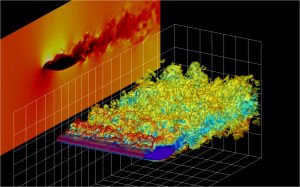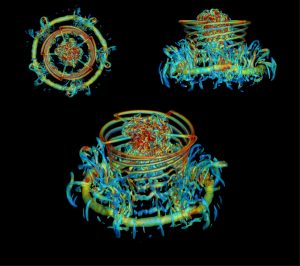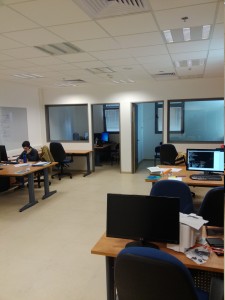Welcome to the website of the CFDLAB under the direction of Prof. Steven Frankel! We focus on modeling and simulation of transitional and turbulent flows. We focus on the use of the large eddy simulation (LES) approach, high-fidelity numerical methods, and high-performance computing to simulate complex flows in a variety of application areas include aerodynamics, aeroacoustics, cardiovascular, cavitation, combustion, fluid-structure interactions, high-speed reacting flows, microfluidics, multiphase flows, and turbulent flows. We primarily develop our own in-house codes and currently feature several high-fidelity in-house codes for incompressible, low-Mach, and fully compressible non-reacting and reacting, single- and multiphase flows. We also utilize open-source and commercial CFD codes such as OpenFOAM, SU2, and Star-CCM+. Contact us if you are interested in joining the group as an MS, PhD, or postdoctoral student or as a visiting scholar or if you would like to fund a project.
Pic/video of the month
Here we will try and post a new pic or video each month representing the latest efforts of students in the CFDLAB…Below are two recent stills (the movies are too big to upload but they are fantastic) related to (a) reversed flow aerodynamics related to high-speed rotorcraft and (b) 5-bladed rotor in hover…


NEWS! The latest bits and bytes…
- The 5th CFDIMPACT 2019 conference is scheduled for July 1, 2019 and the Keynote speaker will be Prof. George Karniadakis and his talk will be entitled “Physics-Informed Learning Machines for Physics Systems” – you don’t want to miss it so stay tuned for more information over the coming months…
- Please like the CFDLAB Facebook page…
- Please follow us on LinkedIn…
- M. S., Ph.D., and postdoctoral student openings at the CFDLAB in high-fidelity simulations of turbulent flows including efforts on hypersonic aerodynamics including high-speed boundary layer transition, scramjet combustion, computational aeroacoustic of rotorcraft, unsteady aerodynamics, and cavitation. Contact Prof. Frankel for more information or to apply.
